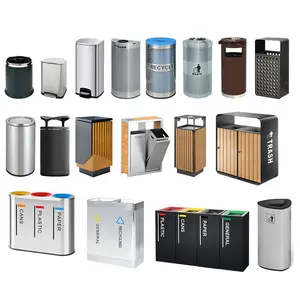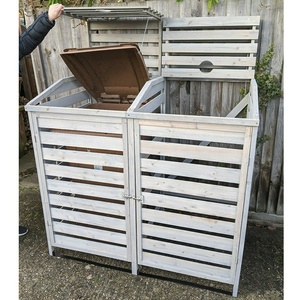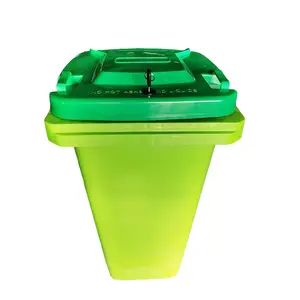Introduction to Lockable Dustbins
The evolution of waste management has led to the development of various trash containment solutions, among which the lockable dustbin stands out. This category encompasses a range of refuse containers designed with locking mechanisms to secure waste, ensuring cleanliness and hygiene in various settings.
Types and Applications
Dustbins with lockable lids come in diverse forms to cater to different needs. From compact models suitable for office spaces to larger versions for outdoor use, each lockable dustbin serves a specific purpose. Outdoor units often feature wheels for mobility, while kitchen variants are equipped with odor-controlling lids to manage decomposing waste efficiently.
Features and Materials
The materials used in lockable dustbins range from durable plastics to robust stainless steel, each selected for its longevity and ease of maintenance. Features may include wheels for portability, pedal-operated lids for hands-free operation, and even touch-free sensors for a more hygienic approach to waste disposal.
Capacity and Size Adaptability
Capacity is a crucial aspect of a lockable dustbin, with sizes varying from small 4-gallon containers to larger 64-gallon units. Smaller bins are ideal for areas with limited space or waste, while larger bins are necessary for kitchens and gardens where refuse accumulates more quickly.
Innovations in Waste Disposal
Innovation has not bypassed the realm of lockable dustbins. Modern bins now feature advancements such as voice-activated opening mechanisms, enhancing the user experience and promoting a more sanitary environment.
Advantages of Segregation
The introduction of double-compartment dustbins with lockable lids has simplified waste segregation. These units allow for the separation of organic from recyclable materials, streamlining the recycling process and fostering environmentally responsible waste management practices.







































 浙公网安备 33010002000092号
浙公网安备 33010002000092号 浙B2-20120091-4
浙B2-20120091-4